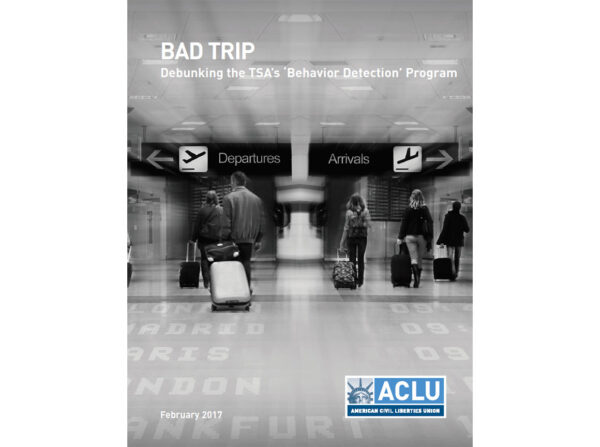Under the government’s “behavior detection” program, thousands of TSA officers at airports around the country watch passengers for behaviors that the TSA claims are associated with stress, fear, or deception. The officers then flag certain people for additional inspection and questioning.
The program has long been criticized as unscientific, ineffective, and wasteful, and it has been blamed by passengers and TSA officers themselves for racial and religious profiling – but still it continues.
This report, based on documents the ACLU obtained in a Freedom of Information Act lawsuit, reveals that materials in TSA’s own files discredit this junk-science program.
The report’s key findings include:
The TSA expanded the scope of the behavior detection program and its use of surveillance techniques.
Academic research and other documents in the TSA’s own files reinforce that behavior detection is unscientific and unreliable.
The TSA repeatedly overstated the scientific validity of behavior detection in communications with members of Congress and the Government Accountability Office.
Materials in the TSA’s files raise further questions about anti-Muslim bias and the origins and focus of the TSA’s behavior detection program.
The TSA’s documents reveal details of specific instances of racial or religious profiling that the TSA concealed from the public.
The report recommends that Congress discontinue funding the TSA’s behavior detection program and that the TSA implement a rigorous anti-discrimination training program for its workforce.
About the case
TSA Behavior Detection FOIA Database
Related Issues
Stay informed
Sign up to be the first to hear about how to take action.
By completing this form, I agree to receive occasional emails per the terms of the ACLU's privacy statement.
By completing this form, I agree to receive occasional emails per the terms of the ACLU's privacy statement.
